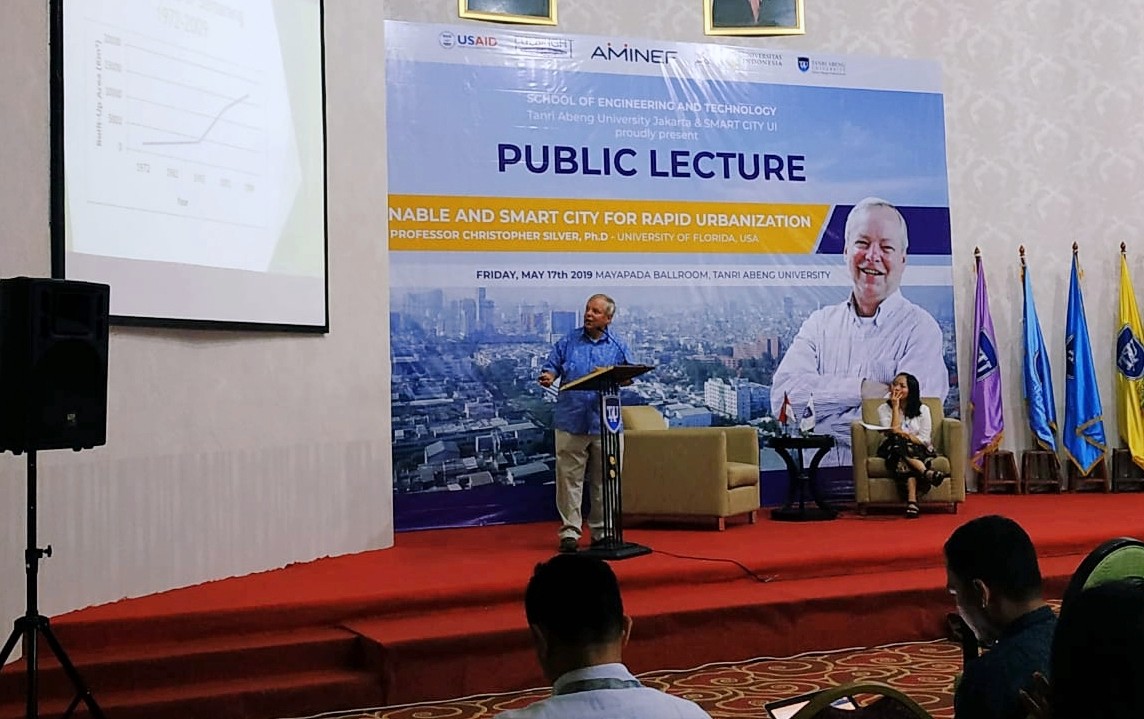
In line with the rising popularity of “Smart City”, cities in Asia have also started embracing the movement. How does this initiative, however, produce new and effective ways to tackle urban challenges, particularly in Indonesia? Christopher Silver, Ph.D from the University of Florida addressed this concern in a public lecture initiated by Tanri Abeng-University in collaboration with CCR SMART CITY, titled "Sustainable and Smart City for Rapid Urbanization: The Case for Indonesian Cities".
Prof. SIlver is a professor at the Department of Urban and Regional Planning of the University of Florida. For thirty years, he has been researching, teaching, collaborating, and consulting in urban planning and development, governance issues and most recently sustainability in Southeast Asia, largely in Indonesia. He is currently supporting SMART CITY project supported by U.S. Agency for International Development (USAID) in Sustainable Higher Education Foundation (SHERA) program.
On the occassion, Prof. Silver explained that the Smart City movement in Indonesia has been universally embraced, as 100 Indonesian cities have pledged to pursue sustainability objectives through an increased reliance on technology to manage their service responsibilities. Smart City needs to use technology to gather and analyze data to better understand many of the urban challenges, such why flooding occurs, where best to locate new development based upon careful consideration of the ecological footprint of the city, in order to guide the rapid development that is occurring. In Jakarta, data analysis has determined that the two primary causes of the devastating flood in recent years is the reduced carrying capacity of the rivers that flow through the metropolis, but even more important, the land subsidence that has been caused by excessive extraction of subsurface water. To determine where best to locate new urban development, cities need the data analysis tools offered through application of Geographic Information Systems to map current and potential future land uses. Assessing the energy costs of unregulated spatial expansion, the environmental implications of current and future energy uses, are also potentially understandable through comprehensive data analysis by local governments. "Smart City requires much more than creating Smart Cards and monitors to keep an eye on trouble spots. To link Smart with Sustainable in the context of Rapid Growth is the bigger task and will be explored in the context of planning the Indonesian city over the past several decades," stated Prof. Silver.
The public lecture, held on Friday, May 17, at Tanri Abeng University, Jakarta, was opened by the Dean of the School of Engineering & Technology, Dr. Nur Afny Catur Andryani. It had drawn 156 participants and 95 online participants with various educational backgrounds and fields of interests, from undergraduate students, assistant professors, professionals and consultant for the Agency for the Assessment and Application of Technology (BPPT).
